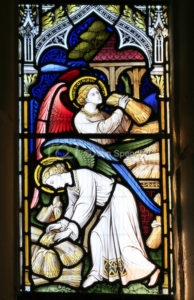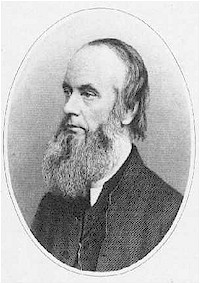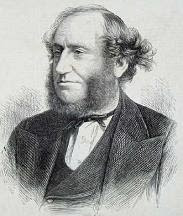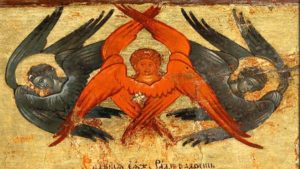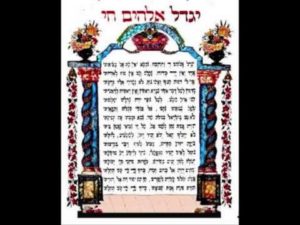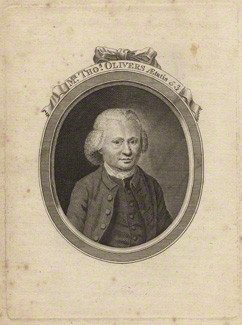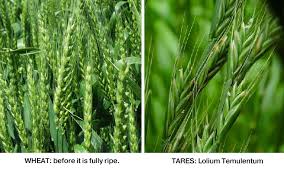Mount Calvary Church
Baltimore, Maryland
The Personal Ordinariate of the Chair of St Peter
Trinity VI
July 23, 2017
Hymns
Come ye faithful people, come
Let all mortal flesh keep silence
The God of Abraham praise
____________________
Opening hymn: # 137 Come, ye faithful people, come, written by Henry Alford (1810—1871) closely follows the gospel for today, the parable of the wheat and the tares.
The first stanza focuses directly on the physical harvest, an image used throughout scripture from in Genesis through Revelation. The second stanza begins Alford’s expansion of the parable. Alford applies it to how joy and sorrow grow together in life, and how God does not eliminate sorrow until after the final harvest when God “will wipe every tear from their eyes.” The third and fourth stanzas move directly to the apocalypse with “For the Lord our God shall come.”
1. Come, ye thankful people, come,
raise the song of harvest home;
all is safely gathered in,
ere the winter storms begin.
God our Maker doth provide
for our wants to be supplied;
come to God’s own temple, come,
raise the song of harvest home.2. All the world is God’s own field,
fruit as praise to God we yield;
wheat and tares together sown
are to joy or sorrow grown;
first the blade and then the ear,
then the full corn shall appear;
Lord of harvest, grant that we
wholesome grain and pure may be.
3. For the Lord our God shall come,
and shall take the harvest home;
from the field shall in that day
all offenses purge away,
giving angels charge at last
in the fire the tares to cast;
but the fruitful ears to store
in the garner evermore.4. Even so, Lord, quickly come,
bring thy final harvest home;
gather thou thy people in,
free from sorrow, free from sin,
there, forever purified,
in thy presence to abide;
come, with all thine angels, come,
raise the glorious harvest home.Here is the Mormon Tabernacle Choir.
Henry Alford
Alford was born in London, of a Somerset family, which had given five consecutive generations of clergymen to the Anglican church. Alford’s early years were passed with his widowed father, who was curate of Steeple Ashton in Wiltshire. He was a precocious boy, and before he was ten had written several Latin odes, a history of the Jews and a series of homiletic outlines. After a peripatetic school course he went up to Trinity College, Cambridge, in 1827 as a scholar. In 1832 he was 34th wrangler and 8th classic, and in 1834 was made fellow of Trinity.
He had already taken orders, and in 1835 began his eighteen-year tenure of the vicarage of Wymeswold in Leicestershire, from which seclusion the twice-repeated offer of a colonial bishopric failed to draw him. He was Hulsean lecturer at Cambridge in 1841-1842, and steadily built up a reputation as scholar and preacher, which might have been greater if not for his excursions into minor poetry and magazine editing.
In 1844, he joined the Cambridge Camden Society (CCS) which published a list of do’s and don’ts for church layout which they promoted as a science. He commissioned A.W.N. Pugin to restore St Mary’s church. He also was a member of the Metaphysical Society, founded in 1869 by James Knowles.
In September 1853 Alford moved to Quebec Street Chapel, Marylebone, London, where he had a large congregation. In March 1857 Lord Palmerston advanced him to the deanery of Canterbury, where, till his death, he lived the same energetic and diverse lifestyle as ever. He had been the friend of most of his eminent contemporaries, and was much beloved for his amiable character. The inscription on his tomb, chosen by himself, is Diversorium Viatoris Hierosolymam Proficiscentis (“the lodging place of a traveler on his way to Jerusalem”).
Besides editing the works of John Donne, he published several volumes of his own verse, The School of the Heart (1835), The Abbot of Muchelnaye (1841), The Greek Testament, The Four Gospels (1849), and a number of hymns, the best-known of which are “Forward! be our watchword,” “Come, ye thankful people, come”, and “Ten thousand times ten thousand.” He translated the Odyssey, wrote a well-known manual of idiom, A Plea for the Queen’s English (1863), and was the first editor of the Contemporary Review (1866–1870).
The hymn tune ST. GEORGE’S WINDSOR, composed in 1856 by George J. Elvey (1816-18930, Note the use of a dotted rhythm, balanced throughout the music, as a compelling invitation to sing, notably on the opening “Come.” One might also notice the phrase “all is safely gathered in” where the pitch begins and ends on A, but feels “gathered” by the use of the neighboring tones, Bb and G. Midway through the hymn, the phrases, “first the blade and then the ear, then the full corn shall appear,” are sung in an ascending sequence that seem almost like corn growing in the field, and later the leap upward for ‘raise the song’ and ‘raise the glorious’ helps to paint the intent of the final phrases in stanzas 1 and 4.
George Job Elvey
Composer and organist George Job Elvey in 1816. He was a boy chorister at Canterbury Cathedral, going on to study at the Royal College of Music. At seventeen he took his first post as an organist, serving at a few parishes until 1835, when he was appointed to serve at St. George’s Chapel in Windsor Castle, where he remained for nearly fifty years as organist and choirmaster. Several other future organists and composers were his students at St. George’s, including C.H.H. Parry.
As organist at St. George’s he also held the official post of Organist to the Queen. In this capacity he came into contact with various members of the British royal family, even teaching composition to the Queen’s consort, Prince Albert (who later wrote a few hymn tunes himself). Many of Elvey’s sacred choral works were composed for royal occasions such as weddings or funerals, and he was knighted in 1871 following his Festival March for the wedding of Princess Louise. (As a letter-writer to the Musical Times noted some years later, his knighthood came at the age of fifty-five, coincidentally LV in Roman numerals)
He was a great admirer of Handel, even naming his youngest son (born after he was sixty) George Frederick Handel Elvey. His choirs often sang Handel’s anthems and choruses, and he also conducted the oratorios at large festivals, his last being a performance of Messiah less than a year before his death in 1893.
Elvey’s own works included nearly fifty anthems, two oratorios, numerous settings of service music and Anglican chant, and, of course, several hymn tunes. His oratorio Mount Carmel was followed very soon after by Mendelssohn’s Elijah, dealing largely with the same Biblical story. Elvey acknowledged the superiority of the latter, and Mount Carmel was never published, though portions of it continued to be performed at St. George’s and elsewhere. His other oratorio, The Resurrection and Ascension, was more popular in its day, though unknown in our time.
Elvey is remembered today primarily for some of his chant settings and two very popular hymn tunes: DIADEMATA and ST. GEORGE’S WINDSOR.
____________________
Offertory hymn: #197 Let all mortal flesh keep silence is a paraphrase by James Moultrie (1829—1885) of the Cherubic hymn from the Liturgy of St. James of the Eastern Church. It dates to the third century. This hymn is chanted as the bread and wine are carried to the altar. The Greek text reads: “Let all mortal flesh keep silent, and stand with fear and trembling, and in itself consider nothing of earth; for the King of kings and Lord of lords cometh forth to be sacrificed, and given as food to the believers; and there go before Him the choirs of Angels, with every dominion and power, the many-eyed Cherubim and the six-winged Seraphim, covering their faces, and crying out the hymn: Alleluia, Alleluia, Alleluia.” Here is the hymn in the 4th Plagal. Here is the Great Entrance:
Let all mortal flesh keep silence,
And with fear and trembling stand;
Ponder nothing earthly minded,
For with blessing in His hand,
Christ our God to earth descendeth,
Our full homage to demand.King of kings, yet born of Mary,
As of old on earth He stood,
Lord of lords, in human vesture,
In the body and the blood;
He will give to all the faithful
His own self for heavenly food.Rank on rank the host of heaven
Spreads its vanguard on the way,
As the Light of light descendeth
From the realms of endless day,
That the powers of hell may vanish
As the darkness clears away.At His feet the six wingèd seraph,
Cherubim with sleepless eye,
Veil their faces to the presence,
As with ceaseless voice they cry:
Alleluia, Alleluia
Alleluia, Lord Most High
Her is the King’s College, Cambridge, choir.
Gerald Moultrie was a Victorian public schoolmaster and Anglican hymnographer born on September 16, 1829, at Rugby Rectory, Warwickshire, England. He died on April 25, 1885, Southleigh, England, aged 55.
____________________
Closing hymn: One night in London, Thomas Olivers (1725—1729), a follower of John Wesley, was attracted to a service in a Jewish synagogue, where he heard a great singer, Myer Leoni, sing an ancient Hebrew text in solemn, plaintive mode. Olivers wrote a hymn to that tune: The God of Abraham Praise, which is a paraphrase of the ancient Hebrew Yigdal, or doxology. In the 12th century, Jewish scholar Moses Maimonides codified the 13 articles of the Jewish Creed. These articles of the Jewish faith were later shaped into the Yigdal around 1400 by Daniel ben Judah, a judge in Rome.
Her is the King’s College choir.
Here is a wonderful Sephardic Yigdal. Here is a (to my ear) klezmer arrangement of the Yigdal. Here is a modern arrangement of the Yigdal.
Here are the original verses. Note that in almost all hymnals the specifically Christian references have been removed, often to make the hymn suitable for interfaith gatherings.
The God of Abraham praise, who reigns enthroned above;
Ancient of everlasting days, and God of Love;
Jehovah, great I AM! by earth and Heav’n confessed;
I bow and bless the sacred Name forever blessed.The God of Abraham praise, at Whose supreme command
From earth I rise—and seek the joys at His right hand;
I all on earth forsake, its wisdom, fame, and power;
And Him my only Portion make, my Shield and Tower.The God of Abraham praise, whose all sufficient grace
Shall guide me all my happy days, in all my ways.
He calls a worm His friend, He calls Himself my God!
And He shall save me to the end, thro’ Jesus’ blood.He by Himself has sworn; I on His oath depend,
I shall, on eagle wings upborne, to Heav’n ascend.
I shall behold His face; I shall His power adore,
And sing the wonders of His grace forevermore.Tho’ nature’s strength decay, and earth and hell withstand,
To Canaan’s bounds I urge my way, at His command.
The wat’ry deep I pass, with Jesus in my view;
And thro’ the howling wilderness my way pursue.The goodly land I see, with peace and plenty bless’d;
A land of sacred liberty, and endless rest.
There milk and honey flow, and oil and wine abound,
And trees of life forever grow with mercy crowned.There dwells the Lord our King, the Lord our righteousness,
Triumphant o’er the world and sin, the Prince of peace;
On Sion’s sacred height His kingdom still maintains,
And glorious with His saints in light forever reigns.He keeps His own secure, He guards them by His side,
Arrays in garments, white and pure, His spotless bride:
With streams of sacred bliss, with groves of living joys—
With all the fruits of Paradise, He still supplies.Before the great Three-One they all exulting stand;
And tell the wonders He hath done, through all their land:
The list’ning spheres attend, and swell the growing fame;
And sing, in songs which never end, the wondrous Name.The God Who reigns on high the great archangels sing,
And “Holy, holy, holy!” cry, “Almighty King!
Who was, and is, the same, and evermore shall be:
Jehovah—Father—great I AM, we worship Thee!”Before the Savior’s face the ransomed nations bow;
O’erwhelmed at His almighty grace, forever new:
He shows His prints of love—they kindle to a flame!
And sound thro’ all the worlds above the slaughtered Lamb.The whole triumphant host give thanks to God on high;
“Hail, Father, Son, and Holy Ghost,” they ever cry.
Hail, Abraham’s God, and mine! (I join the heav’nly lays,)
All might and majesty are Thine, and endless praise.
Here is the 1940 Hymnal version by an English choir.
Here is the Yigdal:
- Exalted be the Living God and praised, He exists – unbounded by time is His existence;
- He is One – and there is no unity like His Oneness – Inscrutable and infinite is His Oneness;
- He has no semblance of a body nor is He corporeal – nor has His holiness any comparison;
- He preceded every being that was created – the First, and nothing precedes His precedence;
- Behold! He is Master of the universe – Every creature demonstrates His greatness and His sovereignty;
- He granted His flow of prophecy – to His treasured, splendid people;
- In Israel, none like Moses arose again – a prophet who perceived His vision clearly;
- God gave His people a Torah of truth – by means of His prophet, the most trusted of His household;
- God will never amend nor exchange His law – for any other one, for all eternity;
- He scrutinizes and knows our hiddenmost secrets – He perceives a matter’s outcome at its inception;
- He recompenses man with kindness according to his deed – He places evil on the wicked according to his wickedness;
- By the End of Days He will send our Messiah – to redeem those longing for His final salvation;
- God will revive the dead in His abundant kindness – Blessed forever is His praised Name.
Note that the last verse expresses belief in the resurrection of the dead, which is an article of Jewish belief, as is clear from Gospels.
Thomas Olivers
Thomas Olivers was born in 1725 in the Welsh village of Tregynon in Montgomeryshire. Both his father and his mother died when he was four years old. He grew up to be an apprentice shoemaker and he became a profligate and reckless young man.] After his involvement in a scandal which forced him to leave his home, Olivers travelled to Bristol where he heard George Whitfield preach on the text “is not this a brand plucked from the fire?” (Zechariah 3:2). Olivers was converted and stated a desire to follow Whitfield however one of Whitfield’s preachers discouraged him and instead he joined the Methodist society and met one of the founders of Methodism, John Wesley there.
After joining Wesley as a preacher, Olivers was initially stationed to preach in Cornwall. He was later stationed to preach all around Great Britain and Ireland because of his fearless preaching style. He also had good relations with Great Britain’s Jewish community, attending Jewish synagogues and became friends with Rabbi Myer Lyon ] In 1775, Wesley appointed Olivers to co-write the Arminian Magazine with him. Olivers often exercised control over the content of the magazine. Due to a lack of formal education, Olivers’ editorial of the magazine contained several printing errors, which annoyed Wesley but he persevered with Olivers whom he counted as a friend and attached a list of errors at the back of the yearly annual in 1778. However following an “astounding number of errata”, Wesley declared in a letter that “I cannot, dare not, will not suffer Thomas Olivers to murder the Arminian Magazine any longer. The errata are intolerable and innumerable. They shall be so no more” and removed Olivers from his position in 1789. Despite this, Olivers and Wesley remained good friends, often viewed as a father-son relationship. When Olivers died in March 1799, he was buried in Wesley’s grave in London.
(Thanks to Wiki and Conjubilant)
Digression on Wheat and Tares
This sense of the word tare survives only in the title of this parable. The etymology is: Middle English tare (“vetch”), from Old English *taru, from Proto-Germanic *tarwō (compare Dutch tarwe (“wheat”)), from Proto-Indo-European *dr̥Hu̯ā (compare Welsh drewg (“darnel”), Lithuanian dirvà (“field”), Ancient Greek δάρατος (dáratos, “bread”), Sanskrit दूर्वा (dūrvā, “panic grass, millet”)).
Here is a comparison and wheat and tares. It is hard at one stage to distinguish them.
